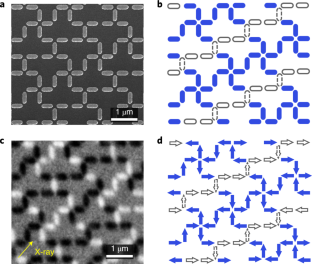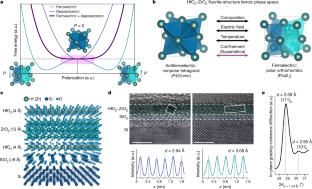エンジニアは、流体懸濁液が異なるスケールでどのように異なる挙動を示すかを説明します。 Engineers describe how fluid suspensions exhibit different behaviors at different scales
2022-04-07 カリフォルニア大学サンタバーバラ校(UCSB)

140μmの粒子の濃度が異なる流体からのシリコーンオイルの液滴。(A)は純粋な液体、(B)は濃度2%、(C)は濃度20%、(D)は濃度50%。 Photo Credit: THIÉVENAZ AND SAURET
・粘性のある液体では、ある層が隣の層に抗力を及ぼし、変形や流動に対してより抵抗力のある厚い液体が生成される。懸濁液中の粒子も、これと同じように、ある粒子は、隣の粒子が動くと動きやすくなり、液体の実効粘度が高くなる。濃度が高いほど粒子同士が接近し、その効果が強まる。懸濁液を遠くから見ている限りは、粘性の高い液体というだけです。と、機械工学科の博士研究員であるThiévenaz氏は説明する。
・液滴の実験で、ThiévenazとSauretは、懸濁液がある厚さまでは粘性液体のように伸び、それ以降は粒子を互いに引き離すことができるようになることを確認した。すると、濃度が異なる領域ができ、異なる挙動を示すようになる。最終的には、ある領域は粒子を含まず、純粋な流体のように振る舞うようになる。この後、実効粘度は純粋な液体の粘度に単純化される。・研究成果は、米国科学アカデミー紀要(外部リンク)に掲載され、近似の限界を浮き彫りにしたもので、産業界への応用が期待されています。
<関連情報>
- https://www.news.ucsb.edu/2022/020601/granular-understanding
- https://www.pnas.org/doi/full/10.1073/pnas.2120893119
懸垂液滴のピンチオフにおける不均質性の発現について The onset of heterogeneity in the pinch-off of suspension drops
Virgile Thiévenaz and Alban Sauret
Proceedings of the National Academy of Sciences Published:March 23, 2022
https://doi.org/10.1073/pnas.2120893119
Abstract
At large scales, particulate suspensions flow like homogeneous viscous liquids, but at the particle scale, the role of the local heterogeneity brought by the particles cannot be neglected. The volume fraction also matters; in dense suspensions, particulate effects can be felt across distances much larger than the particle diameter. Therefore, whether a suspension should behave as a homogeneous or heterogeneous fluid is a matter of scale. Here, we consider the canonical situation of the pinch-off of suspension drops to study the behavior of suspensions at different scales. Initially, the filament of suspension thins down like a homogeneous liquid until reaching a critical thickness at which the thinning accelerates. Eventually, a region devoid of particles appears, and the breakup occurs similarly to a homogeneous viscous liquid. Although this problem have been studied for almost 20 y, the role of heterogeneity in the acceleration of the pinch-off is still not understood. We show that the onset of heterogeneity corresponds to the dislocation of the suspensions where local fluctuations in particle concentration increase. We derive scaling laws for the dynamics in the heterogeneous regime and develop a model to predict the coherence length at which the discrete nature of the particles appears, and we demonstrate that this length depends both on the particle size and on the volume fraction of the suspension. We extend this approach to polydisperse suspensions. Our work sheds light on the mesoscopic scale below which starts the heterogeneous regime and a continuum approach is not valid anymore.



